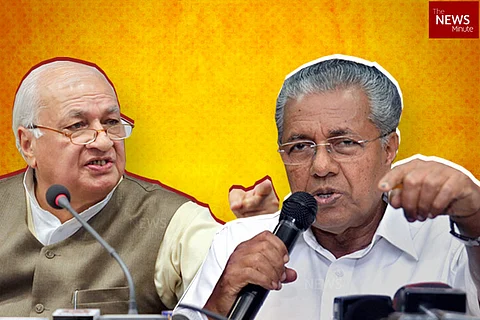

Kerala is the first state Assembly in India to register its stand against the recently-passed Citizenship Amendment Act. The state Assembly passed a resolution against the Citizenship Amendment Act last Tuesday, where it called the same unconstitutional and requested the Union government to repeal the Act.
One of the people who has been in favour of the CAA is Kerala’s Governor, Mohammed Arif Khan. While addressing the press on Thursday, the Governor said that the passing of such a resolution by the Assembly had no legal or constitutional validity. This comes after he was heckled at the Indian History Congress for his pro-CAA views.
“This may be a part of the advice given by the people from the Indian History Congress to the government but this has no legal or constitutional validity. Why? Because citizenship is exclusively a central subject. So, this actually means nothing,” the Governor said on Thursday. (Indian History Congress is the largest professional and academic body of Indian historians.)
Khan claimed that the Indian History Congress has made some recommendations to the state government, including not to cooperate with the Centre. The recommendations are "totally illegal" and have "criminal content,” he said.
But, is the Kerala Assembly's resolution constitutional?
“If the government had passed a resolution stating they would not implement the Act, it would have been wholly unconstitutional. But should the resolution be read as a voice of the Kerala Legislature objecting and disagreeing to a decision taken by the Parliament and recording its objection to it, that in itself cannot be stated as unconstitutional,” said lawyer and constitutional expert Aryama Sundaram.
Senior advocate and Rajya Sabha MP KTS Tulsi said that he doesn’t agree with the Governor, and every Assembly, which is sovereign within its state, is bound to look after its citizens’ interests. “In this case, every Assembly has rules by which it is governed and the rules provide for any matter of great interest - a resolution can be brought. There is an express provision in the rules that the resolution can be moved with regard to focus the attention of the government. A resolution is not law, it is only a sense of the House, and the House represents the people of that state,” he said.
He further added that this is part of the federal structure, and no one can prevent the Legislature from passing a resolution.
“If it is unanimous, as it was [nearly unanimous] in this case, then it’s giving to the whole country the sense of the House. They are entitled to agree on an issue and bring it to the notice of the Central government, it’s their opinion. It’s the opinion of a democratically elected Legislature and they have an inherent right to express their opinion and no one can prevent that,” he further added. Other than the lone BJP MLA in the Assembly, all the other members were in favour of the resolution moved by the Chief Minister.
Chakshu Roy of PRS Legislative Research also added that as per the rules of the Assembly, the Kerala Assembly could pass such a resolution. But on the matter of constitutional validity, he maintained that it was up to the courts to decide.
A resolution is generally passed to reflect the general opinion of the House — in this case, that of the Kerala Legislature. “A resolution may be in the form of a declaration of opinion, or recommendation or may be in the form so as to record either approval or disapproval by the Assembly of an act or policy of Government, or convey a message; or commend, urge or request an action; or call attention to a matter or situation for consideration by Government or in such other form as the Speaker may consider appropriate,” state the Rules of Procedure of the Kerala Assembly.
On Friday, Kerala Law Minister AK Balan also addressed the issue, and said that the Assembly had a legal right to pass a resolution.
“We have passed resolutions in 2006, when G Sudhakaran was a minister and in 2018 when Kadakkampally Surendran was the Devaswom Minister. The ruling government and the opposition got together and passed a resolution when the Kerala cooperatives were brought under the purview of the Income Tax Department, which led to losses in the sector,” he said.
Further, he questioned if the Constitution or if laws governing the proceedings of the House mention if they are not allowed to pass resolutions.
“The resolution is a request to the Central government to intervene and address the concerns with regard to the Act,” he added.